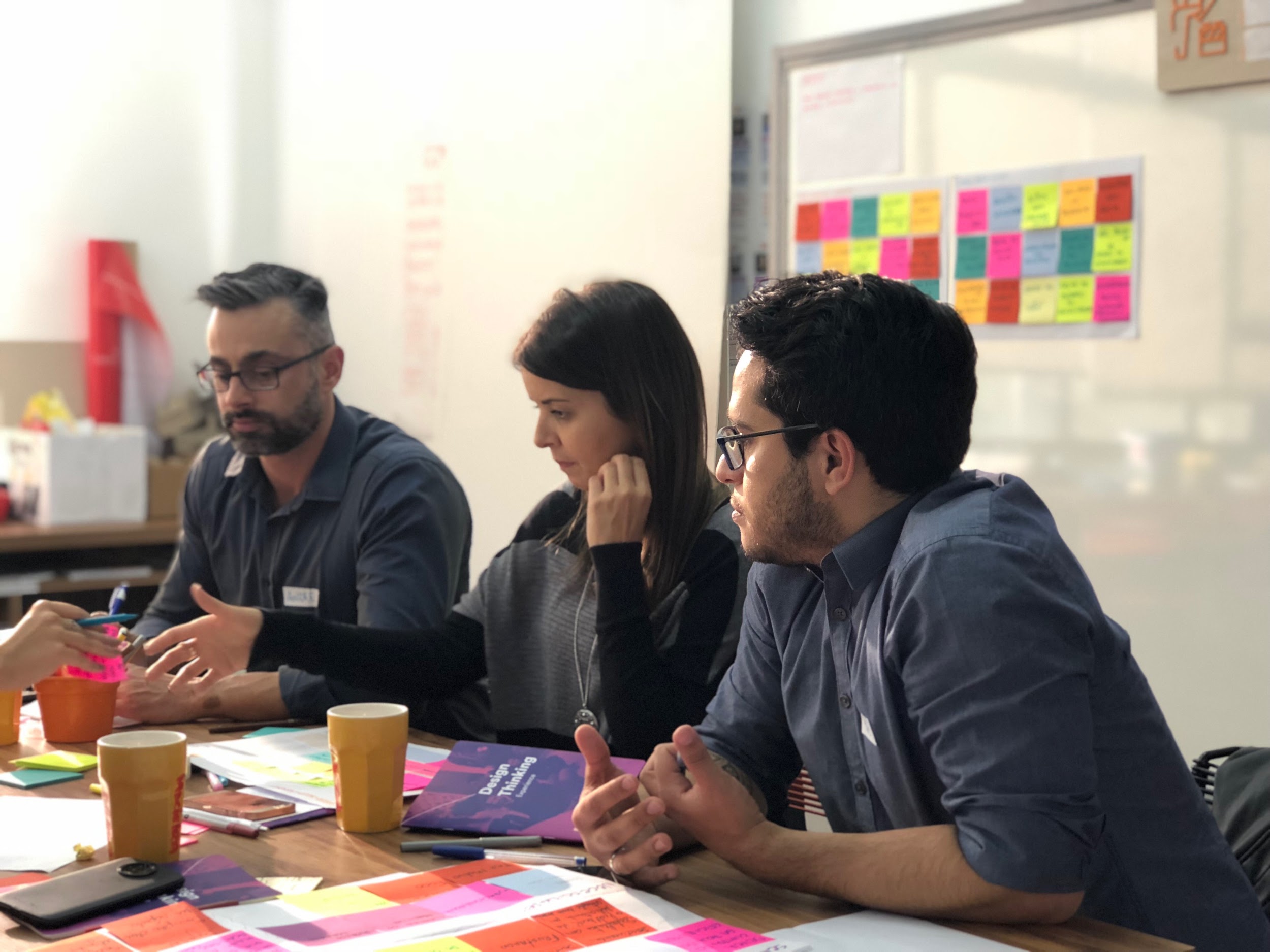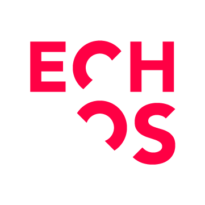No matter what industry you’re in, innovation surely is a part of your day-to-day. Companies of every sector tend to use the term “innovation” to challenge themselves and their employees to make sure they are ahead of the curve instead of chasing tale when it comes to new technologies and market trends.
A very common misconception is the notion that technology and innovation are synonyms. Technology is one part of a number of things that, when working together in harmony, become innovation. Although a technological gadget can be innovative, when technology doesn’t serve the end consumer a purpose, when it doesn’t add value to their life, it cannot be considered innovative.
Design Thinking applies design problem-solving methodologies to promote a mindset shift and teach professionals the difference between great ideas and innovative ideas. Here at Echos, we believe all you need to become a great innovator is the right mindset and the right tools.
Here you will find a quick who’s who in the Design Thinking Innovation world:
Design Thinker
A Design Thinker is a person who loves solving problems regardless of complexity or context. Using design tools and techniques, they are able to map systems and deeply understand people’s needs and pain points, becoming equipped to create innovative solutions that will satisfy the human being at the centre of that problem.
Design Thinkers are professionals that are capable of having an overview from beginning to end in the innovation process. Everything starts with the “design thinker mindset” which proclaims that every solution should be human-centred.
They have the ability to zoom in and zoom out (understanding the individual’s need as well as the system the individual is part of) and can bring many different perspectives during the problem-solving process.
Becoming a Design Thinker is the first step in the innovation ladder and will give you the basics so that you can specialise in other fronts of innovation.
Business Designer
A business designer is a strategist that focus on generating value for companies by creating new business models or bettering existent business models. They are professionals that are able to identify market opportunities and transform them into successful businesses and competitive advantage, even when lacking in resources to do so.
Through the human-centred design thinking mindset, they recognise their customers’ real needs and use this knowledge to mould a business the best way possible.
Service Designer
A Service Designer is a professional who is able to holistically comprehend various stakeholders perspectives and incorporate that knowledge into the design of a new service. They are the user experience masters, always aiming to create services that add value and make their customers’ lives better.
Service Designers are professionals in high demand as contemporary society is becoming a place where services are more relevant than products.
You can read more here about the new service era we are living in.
Social Innovation Designer
At the heart of good design is always the search for creating a better world. A Social Innovation Designer is a professional that uses innovation and strategy to create change in social structures to better people’s lives.
A Social Innovation Designer is a network articulator, who moves through different stakeholder circles, maps social problems, test possibilities and create solutions that will make improvements that directly affect people’s lives.
Empathy is, of course, a very strong trait of the social innovator, whose work has the ability to transform systems that will affect society positively.
Facilitation Designer
If Design Thinking is a collaborative mindset, management through a Design Thinking perspective couldn’t be any different.
A Facilitation Designer is a professional that serves as a vessel to educate, instigate and facilitate creativity and innovation amongst groups of people.
They are strategic designers that have the valuable ability to activate collective intelligence in a group by identifying different personalities, skills and encouraging people to work together in the best way they can.
A facilitation Designer helps people in organisations to navigate through complex problems, using every team member’s best attributes, fostering collaboration and working as a catalyst for finding innovative solutions.
What about you, what kind of innovator are you? What kind do you wish to be?
*This article was translated, adapted and edited by Rani Ghazzaoui Luke.
—
If you’d like to start an innovation journey in your company, you can check out our in-house course offering as well as download for free our Design Thinking toolkit by clicking here.
If you’d like to see what are the upcoming courses in your region, visit our website.
If you have a special project and would like to use Echos’ consultancy services, you can send us an email.



